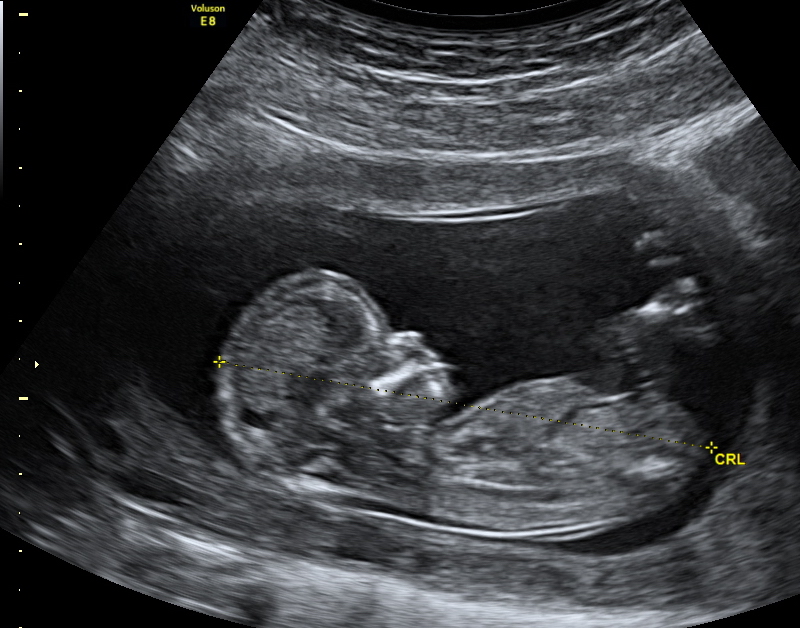There are a variety of ultrasound tests, and they are performed for an array of reasons. These tests can be performed anytime during pregnancy, and the number performed varies by doctor. There is not necessarily a recommended number that have to be performed during gestation, so they should only be done on your doctor’s schedule.
Types of ultrasounds
There are seven types of ultrasounds, and they are all performed for different reasons:
- Transvaginal scans are usually used just in the early stages of pregnancy. An ultrasound probe is inserted into the vagina to generate images.
- Standard ultrasounds are the most common and are done over the abdomen to produce black and white 2D sonograms.
- Advanced ultrasounds are very much like standard ultrasounds but have more advanced equipment and are used to target suspected abnormalities.
- Doppler ultrasounds measure small changes in ultrasound wave frequencies as they bounce off of moving objects. Doppler ultrasounds are used during each office visit after the first trimester.
- 3D ultrasounds use enhanced software and probes to create 3D images.
- 4D ultrasounds, also called dynamic 3D ultrasounds, use scanners to look at the movements of the baby before delivery.
- Fetal echocardiography uses ultrasound waves to screen for congenital heart conditions by looking at the anatomy and function of the fetal heart.
What are the risks of ultrasounds?
Studies have shown that ultrasounds are safe for both mother and baby. They are non-invasive procedures and pose almost no risk when done properly by a doctor. Ultrasounds have not been shown to cause any harm, but the long term effects on the baby have not been studied. This means that ultrasounds should only be performed when medically indicated.
What do ultrasounds look for?
Ultrasounds are used to help detect abnormalities and complications with the pregnancy. Your doctor may perform an ultrasound for a variety of reasons throughout your pregnancy. If you have had complications during previous pregnancies your doctor might be more inclined to perform ultrasounds during your current pregnancy. Here are some reasons your doctor might choose to use an ultrasound:
- 1st Trimester: Confirm heartbeat, measure gestational age, assess abnormal pregnancy, confirm multiple pregnancy, and screen for molar or ectopic pregnancies.
- 2nd Trimester: Evaluate for fetal abnormalities, assess fetal growth and well-being, and check amniotic fluid levels.
- 3rd Trimester: Observe fetal movements, diagnose intrauterine death, identify the location of the placenta, assess amniotic fluid levels, confirm the position of the baby, and estimate the fetal weight.
Ultrasounds are safe procedures and can help screen for abnormalities or confirm the health of you and your baby. Schedule an appointment today to talk with one of our doctors about any questions or concerns you might have regarding your pregnancy.
